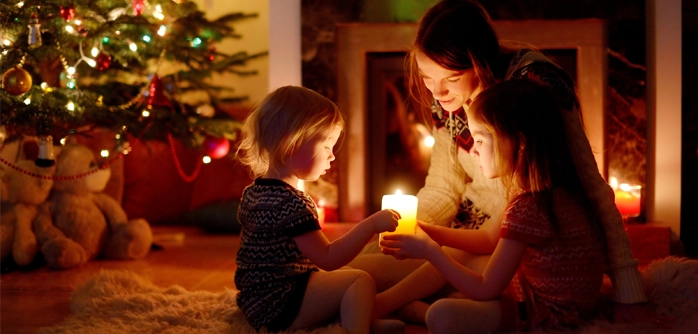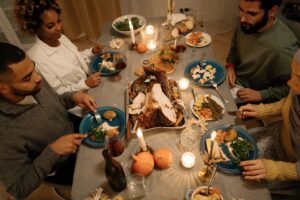Introduction
The holidays are a time for family, friends, and special memories. But that doesn’t mean there aren’t some risks involved. There are many things you can do to stay safe during the holidays to avoid Christmas-time hazards—even if you’re hosting Christmas dinner at home.
Turkey
Turkey bones can be a choking hazard for small children, so it’s important to be careful about what you throw away, what you leave out, and what you put in the trash or compost.
Don’t let your hard work go to waste
- Keep food safety in mind. Remember, all foods need to be refrigerated, and some need to be cooked before being stored.
- Put your food away as soon as possible after cooking it, even if that means letting the roast sit out on the counter while you wrap it in aluminum foil and find a place for it in your fridge.
- Cooked foods shouldn’t sit out at room temperature for more than two hours; once they’ve sat out for longer than that (whether or not they were hot when they first went into storage), throw them away or return them to their proper container for use later.
Food poisoning concerns
Salmonella more commonly known as food poisoning is a serious health concern, and it can be caused by a variety of different things. This is because food is susceptible to contamination from bacteria, viruses and parasites. Some foodborne illnesses are caused by eating food that has been left out too long or not cooked long enough.
If you’ve ever experienced food poisoning before, you know that it’s not fun—it can cause vomiting, diarrhea and other uncomfortable symptoms that make you wish you were anywhere but where you are. Foodborne illness also has the potential to make you sicker than normal adults; children are especially vulnerable because their immune systems aren’t developed fully yet!
The risk of food poisoning increases during the holidays because there will be more people around who might have gotten sick at some point in their lives (meaning they could easily get sick again). For example: You might feel fine now after having eaten someone else’s cookie at work last week but still end up with an upset stomach later on in the evening when everyone else has already left for home
Decorations that pose a hazard
- Christmas trees and other decorations should be kept away from fireplaces, radiators, candles and other heat sources.
- Do not use flammable materials to decorate your home.
- Don’t hang decorations from ceiling fans or any other moving objects.
Trimmings
You should be careful when hanging Christmas decorations, especially lights. You should avoid hanging anything that is too heavy or too long. If you have any questions, contact an electrician to check the integrity of your electrical system.
Electrical failure and fire hazards
Electrical failure and fire hazards are common in the winter. Here’s how you can prevent Christmas-time hazards and electrical failures:
- Keep your thermostat at a reasonable level, especially if you are using holiday lights.
- If you have any frayed or exposed wires, make sure that they’re repaired before using them again.
- Don’t overload circuits with too many appliances plugged into one outlet (this will increase the risk of fire). It’s best to unplug large appliances when not in use. Also make sure that extension cords are used properly and have no damage at all on them! If there is any kind of damage on it, throw it away immediately! Using damaged extension cords is very dangerous because it could cause a short circuit which may lead to an electrical failure/fire hazard! Always remember – if you see damage on an extension cord then disconnect it immediately from power source! For example: A lamp has been left on for hours but then suddenly catches fire when someone else turns off their lamp as well… This means that both lamps were drawing power from same outlet so once one was turned off then another lamp became active which caused both lamps to start heating up because they were still drawing power from same outlet.”
Candle Safety
If you’re going to use candles in your home, take the time to keep them safe.
- Never leave a burning candle unattended, and make sure that it’s out before leaving the room.
- Keep candles away from curtains or other flammable materials and away from kids’ hands.
- Use a candle snuffer to extinguish the flame and never blow on a lit candle because this can cause an explosion of hot wax—not something you want near your face!
- Always use glass holders for your candles and keep them away from things that can catch fire (like pets).
Gift wrap and ribbon hazards
To protect your kids from the Christmas-time hazards of wrapping paper and ribbon, follow these guidelines:
- Don’t let a child play with gift wrap or ribbon. They may be tempted to eat it and choke on it if they do.
- Never let a child wrap presents for anyone else, even as part of a game. The same dangers apply here. The child can choke on the wrapping paper or ribbon, if he or she has not been taught how to handle it properly.
- Do not put gifts under the tree until after the holiday has come and gone. This will prevent any mishaps before then (such as an accidently untied bow becoming loose while someone is playing). It also keeps children from getting too excited about playing with their presents before they are ready (which could lead them into trouble).
Food allergies
Food allergies are a major cause of holiday anxiety. If you have a food allergy, it’s important to take precautions and learn how to avoid the allergen.
If you suspect that you have a food allergy, contact your doctor immediately. You may need tests or other treatment as well.
If your child has a food allergy, consult with his or her school about appropriate measures for safe meals on campus or at school events like sports games and dances.
Be careful when eating out at restaurants during the holidays: make sure that there is an allergen-free menu available (if one exists), and ask questions if there isn’t one posted in plain sight. Some restaurants will accommodate requests for special dishes with little fuss!
Christmas is full of potential health risks and can be very dangerous if proper precautions are not taken.
- Christmas is a time for celebration, but it can be dangerous if not prepared.
- There are lots of potential hazards around the home at Christmas. It’s important to know what to do in case of an emergency. Take a first aid course to learn how to deal with many types of emergencies.
Conclusion
I hope that this article has helped you to see the potential dangers during Christmas-time. Remember, if there is anything you can do to keep yourself and your family safe during Christmas-time, do it!
Author-Kathryn Davies




